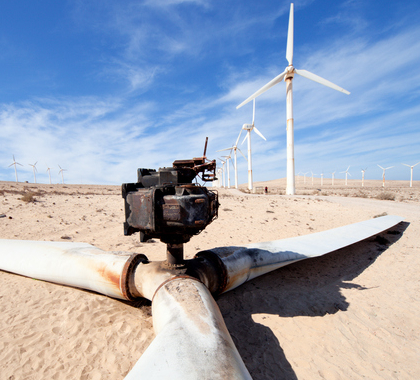If you don’t visit Freedom Pub and the Heartlander digital magazine every day, you’re missing out on some of the best news and commentary on liberty and free markets you can find. But worry not, freedom lovers! Heartland Weekly is here for you every Monday with a highlight show. Subscribe to the email today, and read this week’s edition below.
A Principled Tax Reform Allows Expensing of All Business Costs
Peter Ferrara, Washington Examiner
Classic tax reform involves reducing rates in return for closing loopholes. But what is a loophole? Is any deduction a loophole? Pro-growth tax reform should not include counterproductive tax increases for revenue neutrality. What is needed is to maximize growth through a big pro-growth tax cut, following the same enormously successful policies of Presidents Ronald Reagan and John F. Kennedy, as well as Secretary Andrew Mellon. READ MORE
Education Savings Accounts: The Future of School Choice Has Arrived
Tim Benson, Heartland Policy Brief
Although the idea has been around since the 1990s, education savings accounts (ESAs) are attracting increasing interest among school choice advocates and legislators who want every child to have a quality education. The Heartland Institute has advocated ESAs since 1992, when in a competition organized by the New American Schools Development Corporation we submitted a plan that would have created a system of “Individual Education Accounts” for a Chicago neighborhood. Twenty-five years later, Policy Analyst Tim Benson discusses how universal ESA programs offer the most comprehensive range of educational choices to parents. READ MORE
Wind Power: High Environmental Costs, Limited Energy Delivered
H. Sterling Burnett, Energy Central
In his speech on Wednesday at a rally in Iowa, President Donald Trump made fun of the idea that wind power could meet more than a small fraction of America’s energy needs. Was he right? The problem for wind proponents is despite all the subsidies and mandates—and the use of its punier, but even more expensive cousin, solar power—wind and solar together make up less than 5 percent of all global electric-power use. By any measure, governments’ big push for wind power delivers very little in terms of energy or environmental protection. Trump was right: Wind power advocates are blowhards, and it’s time for governments to stop listening to them. READ MORE
Featured Podcast: Steve Milloy: Exposing EPA Junk Science, Overturning Its Junk Regulations
EPA’s regulations regarding ozone and carbon dioxide—at $1 trillion the most expensive regulations the agency has ever proposed—are largely based on the purported benefits of reducing ambient levels of small particles, or PM 2.5. Yet despite the cost, and supposed danger, EPA refuses to share the data it used to justify claims PM 2.5 is causing hundreds of thousands of deaths. Outside research finds no causal relationship between high levels of PM 2.5 and premature deaths. LISTEN TO MORE
HELP HEARTLAND BY RATING OUR PODCASTS!
If you’re a fan of Heartland’s daily podcasts on public policy, we have a favor to ask: Leave us a positive five-star review on iTunes! Giving one or more of our six podcast feeds a positive review helps more people find it at iTunes. And it also helps drown out the negative reviews that Heartland’s well-organized opponents in the public square are eager to post. Just go to iTunes and search for the Heartland Daily Podcast, the Environment and Climate News podcast, the Budget and Tax News podcast, the Health Care News podcast, the School Reform News podcast, and the In The Tank podcast. Help us grow these great products, which are on pace to be downloaded and listened to nearly two million times in 2017!
The United States Has No Fiscal Space Left
Barry Poulson and John Merrifield, RealClearPolicy
The Great Recession and slower economic growth in recent years have been accompanied by a discontinuous increase in debt-to-GDP ratios in most countries in the Organisation for Economic Co-operation and Development (OECD), most notably the United States. This debt burden has raised significant questions about the ability of these countries to pursue discretionary fiscal policies—an issue that has become more important as countries have encountered the limits of accommodative monetary policy. READ MORE
Teachers Union President Reiterates Opposition to Giving Families Options
Teresa Mull, School Choice Weekly
The opening essay of this week’s School Choice Weekly quotes Randi Weingarten, president of the American Federation of Teachers, saying “This is the first administration to say ‘hell no’ to public education, and we’re going to say ‘hell no’ to them.” The El Paso Times reports: “The president of the American Federation of Teachers in El Paso Saturday rebuked state and national politicians whose policies she says are hurting students, encouraging educators to make an impact in the current political climate.” Well, I really hope Weingarten and her cronies keep saying “hell no” to the Trump administration, all the way to the unemployment office. READ MORE
Saving Money but Costing Lives
Peter Ferrara, Washington Times
Buried deep within Obamacare is a provision that takes away health care from you and your doctors, by taking away payment for critical health care that may be needed to save your life. It is called the Independent Payment Advisory Board (IPAB). This board will be independent of you, your doctors, your hospitals, Medicare, Congress, the judiciary, the democratic process, and ultimately even the Constitution itself. The Obamacare death panel should be killed before it’s too late. READ MORE
Is This a Joke? China to Take Climate Leadership Post-Trump Paris Pull-Out
H. Sterling Burnett, Climate Change Weekly
Following President Donald Trump’s decision to withdraw the United States from the Paris climate agreement, many media reports have claimed China is now leading the world in promoting the compact and reducing carbon dioxide emissions. Good luck with that! While the United States has been the world leader in reducing greenhouse gas emissions, China’s increasing emissions have swamped reductions by all other nations of the world. READ MORE
Bonus Podcast: Renewable Energy and Subsidy Mining
Are renewable energy companies really just subsidy miners? Manhattan Institute Senior Fellow Robert Bryce and Heartland Institute Research Fellow Isaac Orr discuss this question and Bryce’s recent editorial piece “Thanks For Giving Me Your Tax Money,” published in The Wall Street Journal. They discuss the various tax credits and subsidies available for renewable energy companies that increase the costs of electricity for everyone else, and discuss the fact that wind and solar power are far more land-intensive than nuclear energy or fossil fuels. LISTEN TO MORE
California’s Bogus ‘Renewable Energy’
Norman Rogers, American Thinker
California has declared that 50 percent of electricity in the state must come from renewable sources by 2030. California’s definition of renewable sources is bizarre and heavily influenced by the ideas of the green left. For example, most hydro electricity is not considered renewable, even though hydro uses no fuel and emits no greenhouse gas. Nuclear generation is omitted from the list of approved technologies, too—even though nuclear is non-polluting and emits no greenhouse gas. However, chopping down trees and burning them to make electricity is apparently okay. READ MORE
New York Should Not Ban Vaping Wherever Smoking Is Banned
The New York State Senate on Monday passed a measure that would treat vaping exactly like cigarette smoking, banning it everywhere smoking is banned indoors, including restaurants, bars, and offices. “Any effort to control or ban vaping is built on the claims that secondhand smoke causes harm,” says Heartland Policy Advisor Dr. John Dale Dunn, M.D. “Bypassing the ridiculous premise—built on junk science research by the EPA—that secondhand smoke is harmful, the question is: Can the EPA or its allies build an argument that vaping, which produces water vapor after inhaling nicotine, be shown to create a public harm? The answer is no, they can’t.” READ MORE





